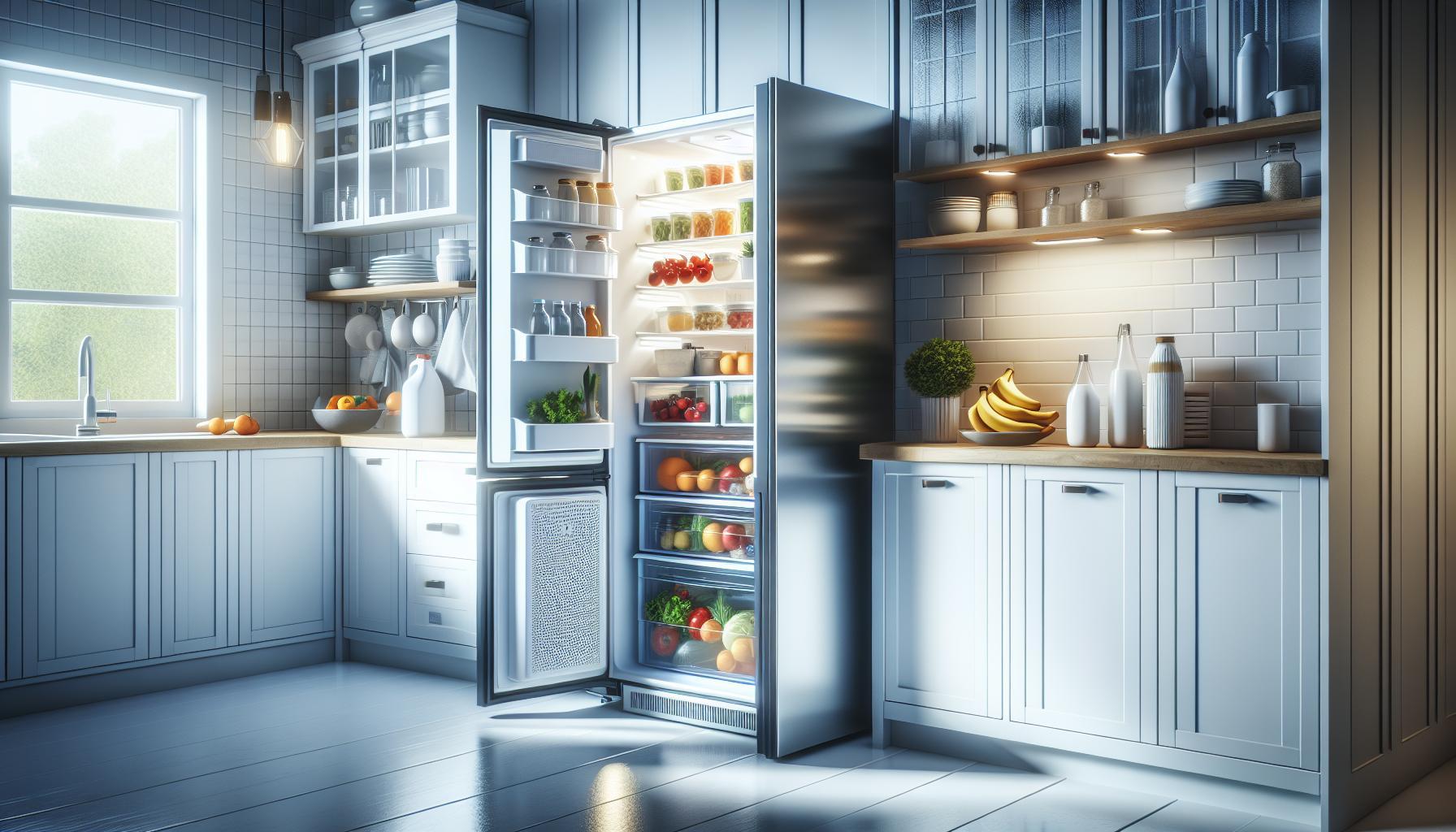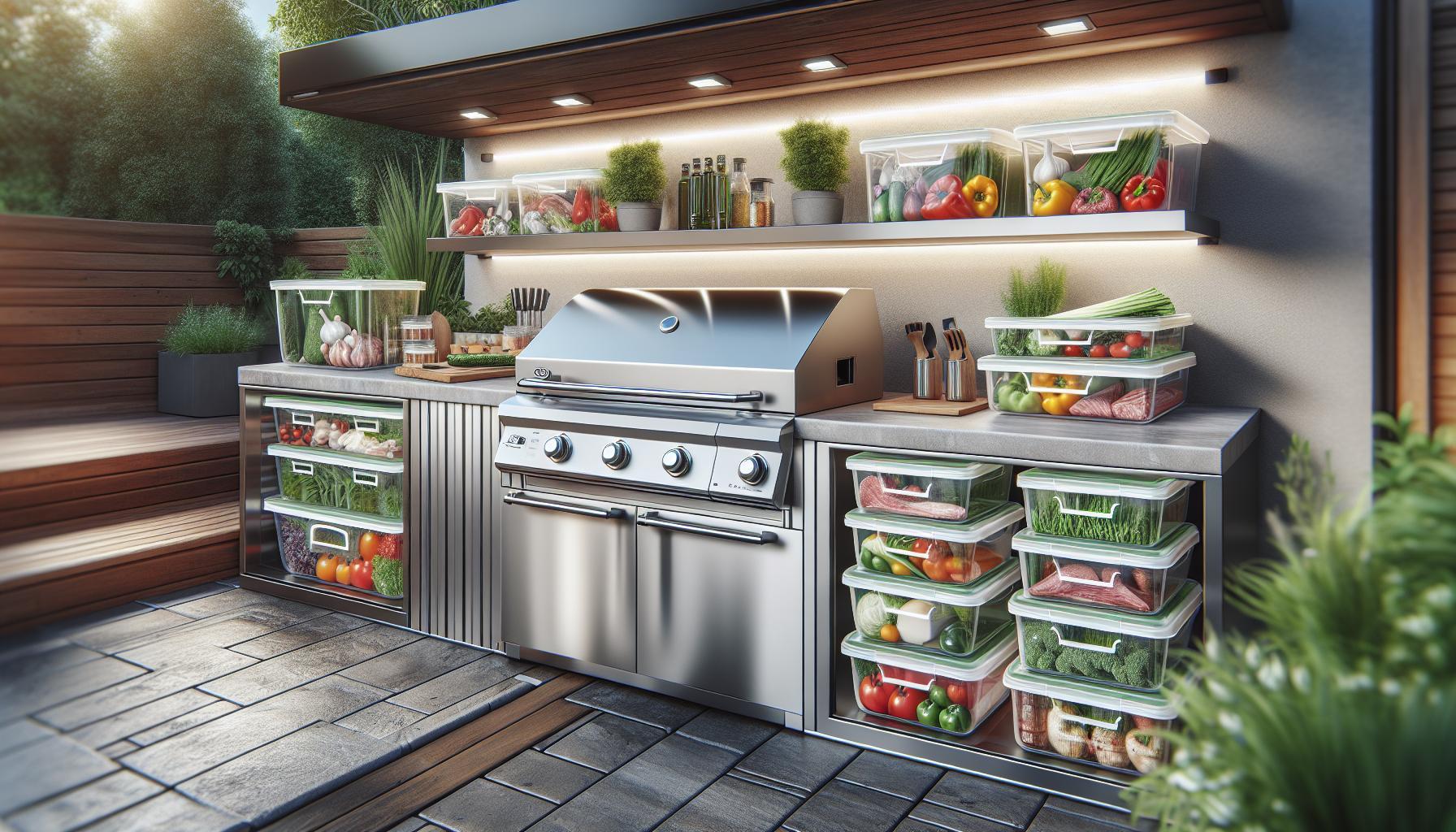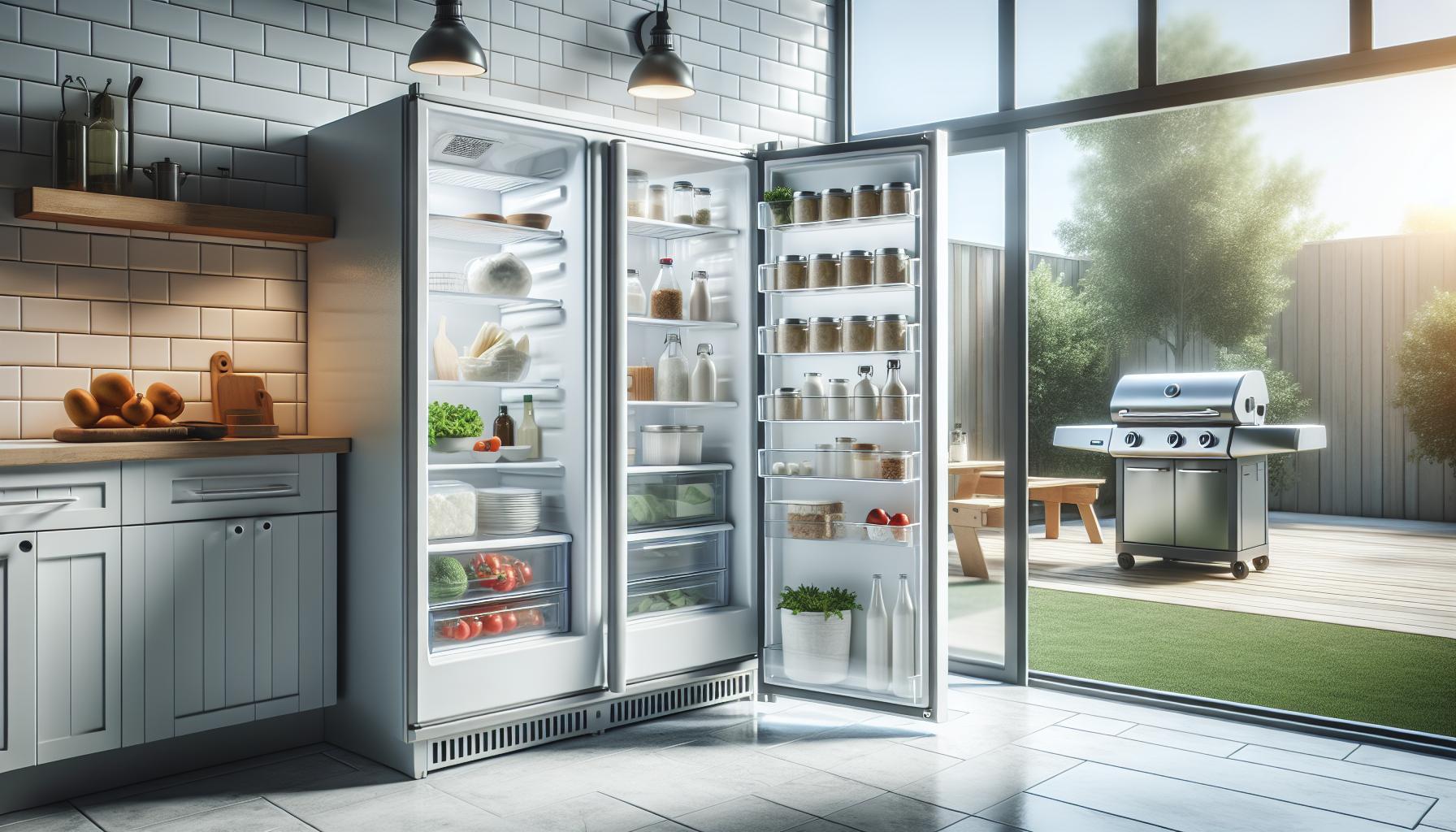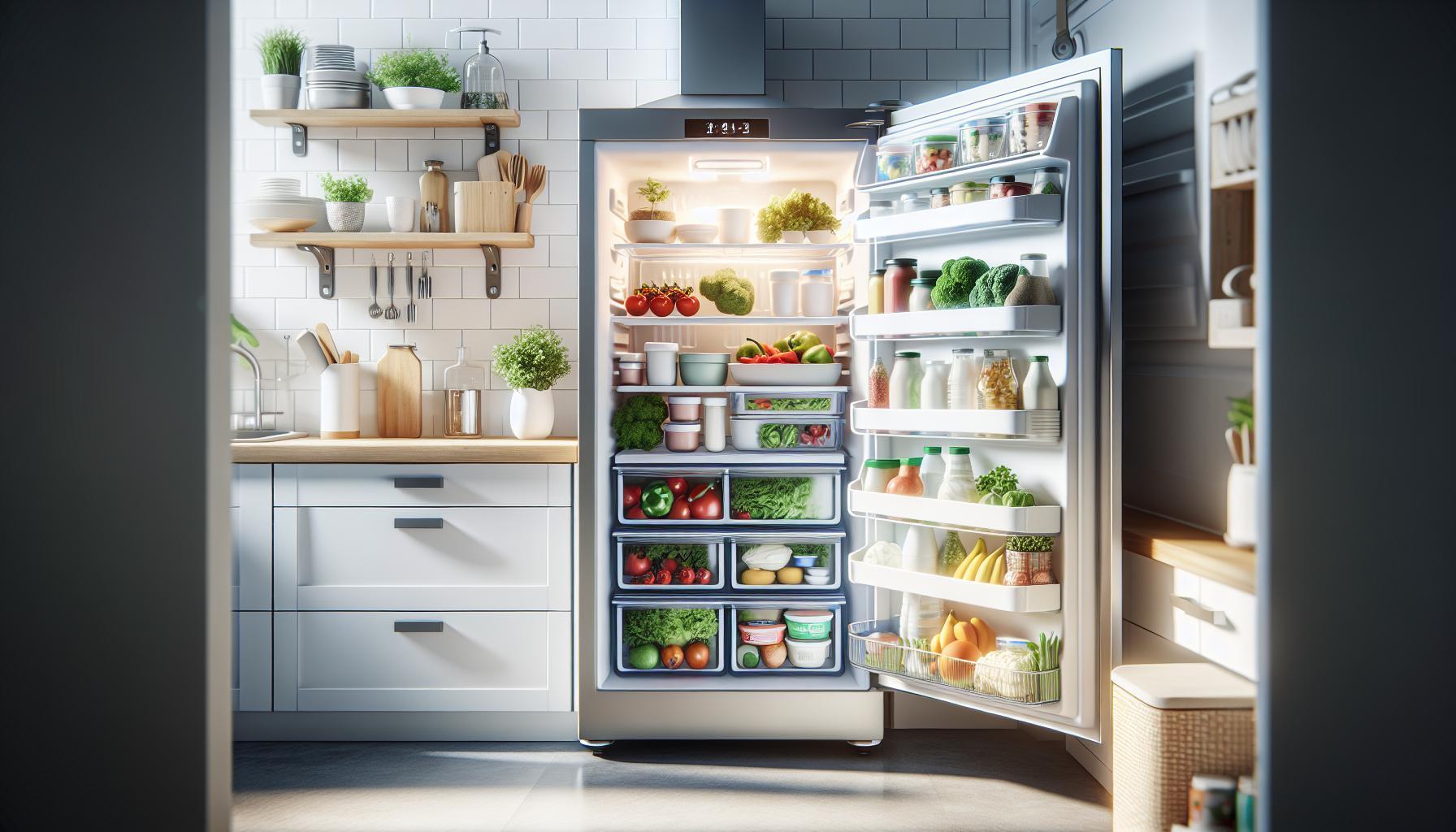Did you know that the average lifespan of a boiler can range from 10 to 15 years, depending on various factors? Understanding how long your boiler will last is crucial for managing your home’s heating needs and budget. A well-maintained boiler not only ensures efficient heating but also prevents unexpected breakdowns that can lead to costly repairs.
As homeowners seek to create comfortable living environments, knowing how to extend the life of your boiler becomes essential. Regular maintenance, proper usage, and timely upgrades can significantly enhance its longevity. By adopting a proactive approach, you can enjoy reliable warmth and save money in the long run, ultimately contributing to a safer home.
In this article, we will explore practical strategies and expert tips to help you maximize your boiler’s lifespan. Keep reading to discover how you can protect your investment and maintain a cozy atmosphere all year round.
How Long Should a Boiler Last? Understanding Lifespan Expectations
The lifespan of a boiler is a critical consideration for homeowners, as it directly affects both comfort and financial investment. Generally, modern boilers are designed to last between 10 to 30 years, depending on several essential factors, including brand, maintenance history, and installation quality. A well-maintained boiler can often surpass its expected lifespan, while neglect can lead to premature failure. Understanding what contributes to a boiler’s longevity can help homeowners make informed decisions about maintenance and potential upgrades.
Quality and brand reputation play significant roles in determining boiler longevity. High-efficiency models from reputable manufacturers typically come with very robust warranties that can last up to 15 years or more, often indicating their expected durability. Additionally, the type of boiler-whether it’s a gas, oil, or electric unit-also influences lifespan. For instance, gas boilers generally have a shorter lifespan, averaging around 15 years, while oil boilers may last closer to 25 years due to their sturdier construction.
Regular maintenance is paramount in extending a boiler’s life. A proactive approach includes annual inspections, routine cleaning, and timely repair of any small issues before they escalate into significant problems. Homeowners are encouraged to schedule annual services with qualified professionals, as these inspections can significantly enhance operating efficiency and catch potential issues early. In addition, keeping the area around the boiler clean and free from debris can prevent overheating and ensure operational safety.
Investing time and resources into maintaining your boiler not only assures a reliable heating supply but also contributes to energy efficiency. A well-tuned boiler operates more effectively, ultimately reducing energy costs. Therefore, paying attention to the lifespan expectancy and implementing a regular maintenance schedule can keep your heating system running smoothly for many years to come.
Signs Your Boiler Might Need Replacement

Identifying when your boiler might need replacement is essential to maintaining not just comfort but also safety in your home. One of the most telling signs is age; if your boiler is approaching or has surpassed the 15- to 20-year mark, it’s prudent to consider a replacement. A boiler that is nearing the end of its expected lifespan is more likely to experience failures, inefficiencies, and potentially costly repairs. Pay attention to any physical signs such as rust or corrosion around the unit, which can indicate wear and tear or internal issues.
Another key indicator to watch for is a noticeable increase in your heating bills without a corresponding increase in usage. If your boiler is struggling to maintain the desired temperature or you notice inconsistent heating throughout your home, these could be signs that it is becoming inefficient and needs to be evaluated for replacement. Also, listen for unusual noises-such as banging, gurgling, or whistling-which may indicate internal problems like sediment buildup or system pressure issues that might require more than simple maintenance.
Leaking water is an immediate concern; if you discover puddles around your boiler or moisture damage on walls, this can signal a significant issue that often necessitates replacement rather than repair. Lastly, if you find yourself frequently calling in service professionals for repairs, this pattern may indicate that the boiler is nearing the end of its operational life. It’s crucial to remember that ongoing repairs can quickly add up, making a newer, more efficient model a potentially more cost-effective solution in the long run.
Recognizing these signs early can save you from unexpected breakdowns and help you make informed decisions about your heating needs. Regular check-ups combined with awareness of these indicators can lead to a safer, more efficient heating system in your home.
Factors That Influence Boiler Lifespan

The lifespan of a boiler is intricately linked to several key factors that can significantly influence its durability and performance over time. Understanding these influences is essential for maximizing your boiler’s efficiency and longevity.
One of the primary elements affecting boiler lifespan is its quality and type. Commercial-grade boilers are built with more robust materials and advanced technology compared to standard residential units, often resulting in greater longevity. Additionally, the specific type of boiler-whether it’s a combi, system, or conventional boiler-can play a role in how long it lasts. For example, an efficiently sized boiler that suits the specific heating demands of your home will experience less strain and require fewer repairs.
Another critical factor is the operating conditions of the boiler. Boilers subjected to hard water or excessive scale buildup can suffer reduced efficiency and performance. Hard water can lead to scaling inside the boiler, which restricts water flow and heat exchange, potentially damaging the unit over time. Regular water quality testing and the installation of water softeners can mitigate these effects, prolonging the system’s life.
Furthermore, installation quality cannot be understated. A poorly installed boiler may operate inefficiently, leading to premature wear and tear. It’s essential to hire a qualified technician who can ensure that the boiler is correctly set up for optimal performance. Proper venting, calibrated controls, and efficient layout all contribute to extending the lifespan.
Lastly, usage patterns such as the frequency and intensity of operation also directly impact longevity. Boilers that are frequently turned on and off are subjected to thermal cycling stress, which can lead to premature component failure. Avoiding unnecessary temperature fluctuations and allowing the boiler to operate within its designed range can enhance its overall lifespan.
By recognizing the factors that influence your boiler’s life expectancy and making informed decisions about installation, maintenance, and usage, you can significantly extend its operational life, ensuring a reliable heating source for years to come.
Importance of Regular Maintenance for Longevity

Regular maintenance is the cornerstone of any boiler’s longevity. Just like a vehicle requires scheduled check-ups to ensure optimal performance and safety, boilers benefit immensely from consistent upkeep. A well-maintained boiler can last significantly longer than one that is neglected, providing not only reliable heating but also improved efficiency and lower energy costs.
Routine maintenance tasks, such as checking the pressure gauge, inspecting valves and hoses, and examining for leaks, can identify minor issues before they escalate into major problems. Implementing an annual service plan with a qualified technician is highly recommended. During these professional evaluations, technicians will perform essential tasks like cleaning the boiler, checking air vents, and ensuring that all components operate smoothly. This regular attention prevents issues such as scale build-up, which can lead to inefficiency and costly repairs down the line.
Additionally, having a proactive approach to boiler maintenance allows homeowners to understand their system better. Familiarity with the boiler’s operation and care contributes to spotting potential problems early. A simple yet effective practice such as adjusting the thermostat settings according to seasonal demand can reduce wear on the system. Homeowners can also enhance their boiler’s lifespan by regularly bleeding radiators and ensuring proper ventilation, as this can improve airflow and combustion within the boiler.
Keeping records of all maintenance and repairs is also beneficial. This documentation not only helps track the boiler’s performance over time but also assists in proving that regular care has been taken, which can be useful if warranty claims arise. By committing to consistent and thorough maintenance, homeowners can enjoy peace of mind knowing they are extending the functional lifespan of their boiler, ensuring warmth and comfort while keeping energy costs manageable.
Pro Tips to Extend Your Boiler’s Lifespan
To maximize the lifespan of your boiler, consistent care and proactive measures are essential. A well-maintained boiler can function efficiently for many years, often surpassing its expected lifespan. Start by establishing a routine schedule for maintenance tasks that go beyond just annual check-ups. Regularly check the pressure gauge and inspect the valves and hoses for signs of wear or leaks. Keeping an eye on these components will allow you to catch minor issues before they escalate into costly repairs.
Understand Your Boiler
Taking the time to understand how your boiler operates can lead to better care and management. Familiarize yourself with the correct thermostat settings for different seasons; adjusting them according to the outside temperature can reduce wear and improve efficiency. It’s also advisable to regularly bleed radiators to ensure the system operates effectively, which helps maintain consistent heat distribution. Proper ventilation is crucial too – ensuring that air can circulate freely around the boiler can enhance combustion efficiency.
Documentation and Record-Keeping
Keep detailed records of all maintenance and repairs performed on your boiler. This not only helps you track performance over time but can also be advantageous in situations where warranties come into play. Having documented evidence of regular maintenance can facilitate claims and provides a clearer picture of your boiler’s health for contractors during inspections or repairs.
- Invest in Quality Components: Whenever replacements are needed, opt for high-quality parts that are compatible with your boiler model. This minimization of risk for malfunction will help keep the system running smoothly.
- Consider a System Upgrade: If your boiler is outdated, consider energy-efficient upgrades or models. Newer systems are typically designed with improved longevity and performance in mind.
By implementing these proactive steps, homeowners can significantly extend the life of their boiler, enjoying reliable heating and peace of mind, all while maintaining efficiency and minimizing energy costs.
Common Boiler Issues and How to Spot Them
Boilers are vital for maintaining a comfortable home environment, but like any mechanical system, they can experience issues that may require attention. Understanding these common boiler problems and their warning signs is key to ensuring the longevity of your unit and avoiding costly repairs or replacements.
One of the most frequent issues is leaks. If you notice a pool of water around your boiler, check the connections and valves. Tightening fittings may make a difference, but persistent leaks could indicate a more serious problem like corrosion or a failing component. Additionally, strange noises such as banging, clanking, or gurgling can signify air trapped in the system, which points to the need for bleeding radiators, or it could be a sign of sediment buildup, requiring a system flush.
Another critical red flag is inadequate heating or inconsistent temperatures. If some rooms remain uncomfortably cold while others are hot, it’s essential to check the thermostat settings and ensure the boiler is correctly calibrated. It may also indicate issues with the distribution system, such as faulty valves or blocked pipes. Furthermore, if your boiler frequently shuts off or fails to start, this may signal problems with the thermostat, pilot light, or electronic controls.
Routine visual checks can help detect common issues early. Look out for discoloration of the pilot light-blue is normal, while yellow or flickering flames indicate a need for maintenance. Alongside these checks, maintaining a service log can help track performance and highlights any recurring issues, paving the way for informed maintenance decisions.
In summary, familiarizing yourself with these common boiler issues and their signs not only enhances the lifespan of your unit but also ensures a more efficient and cost-effective heating system. Regular monitoring and timely action can prevent minor annoyances from escalating into significant problems, safeguarding your home comfort and well-being.
Cost-Effective Upgrades for Older Boilers
Upgrading older boilers can significantly enhance efficiency and prolong their lifespan without the immediate financial burden of a complete replacement. These cost-effective improvements not only remedy common problems but also bring your heating system up to modern standards. For homeowners looking to boost the effectiveness of their existing boiler, several strategies can be effective.
One practical upgrade is to install a programmable thermostat. This device allows for better temperature control by enabling you to set schedules that align with your lifestyle, which reduces energy waste when you’re away. Similarly, consider implementing weatherization measures such as better insulation and sealing leaks around doors and windows. These changes can improve the overall efficiency of your heating system by minimizing heat loss and ensuring that your boiler works less to maintain comfort levels.
Additionally, integrating system upgrades, such as fitting individual room controls or zoning valves, can further enhance the functionality of an older boiler. These devices allow different areas of your home to be heated selectively, ensuring that energy is used efficiently where it’s needed most. A more comprehensive option is to install a low-water cut-off device, which prevents the boiler from operating when water levels are low, helping to avoid damage and enhance safety.
Regular maintenance is also a form of an upgrade in itself. Scheduling annual professional inspections ensures that your boiler operates safely and efficiently. During these inspections, technicians can clean components, check for leaks, and calibrate the system, which keeps the unit running optimally. Simple tasks such as regularly bleeding radiators and flushing the system can not only improve efficiency but also prevent long-term damage. Collectively, these upgrades can result in significant savings on energy bills while extending the lifespan of your boiler.
When to Consider a New Boiler Installation
Making the decision to replace your boiler is crucial for ensuring a safe and efficient heating system in your home. If your current boiler starts showing signs of failing-the average lifespan of a boiler typically ranges from 10 to 15 years-it’s essential to act before a complete breakdown occurs. Look for symptoms such as strange noises, inconsistent heating, frequent breakdowns, or rising energy bills. These indicators can point towards inefficiencies and mounting issues that could lead to costly repairs or, worse, a safety hazard.
Investing in a new boiler may also be warranted if your existing unit is no longer fulfilling your heating needs. Home renovations, additions, or changes in family size can increase your heating demands, necessitating a more powerful system. If your home has become less comfortable, even with the thermostat set properly, this could be a sign that the equipment is underperforming. Additionally, advancements in heating technology mean that newer models often offer significantly improved energy efficiency, which can lower your utility bills and reduce your environmental footprint.
Another crucial factor to consider is reliability. If your boiler requires frequent repairs or has become unreliable, replacing it can save you from the inconvenience and costs associated with these ongoing issues. Prioritize safety-if your boiler has a cracked heat exchanger or presents any signs of a gas leak or carbon monoxide emission, it’s vital to replace it immediately to protect your home and loved ones. Substituting an unreliable or unsafe boiler with a new model not only enhances your peace of mind but also improves the comfort and efficiency of your home heating system.
In summary, consider a new boiler installation when your current boiler shows signs of age, fails to meet your heating needs, or poses safety risks. Investing in a new system can enhance efficiency, reliability, and ultimately save you money in the long run. By staying proactive and attentive to the needs of your heating system, you can ensure a warm and safe environment for your home.
Benefits of Annual Boiler Inspections
Annual boiler inspections are more than just routine maintenance; they are essential for ensuring your heating system operates efficiently and safely throughout its lifespan. A study showed that systems that undergo regular professional check-ups are significantly less likely to experience breakdowns and costly repairs. The benefits of these inspections ripple through your home, enhancing comfort and peace of mind while also extending the life of your boiler.
During an inspection, professionals meticulously assess various components of your boiler, including the combustion system, heat exchangers, and safety mechanisms. This not only helps identify potential issues before they escalate, but it also reassures you that your system meets all safety standards. Some key benefits of these inspections include:
- Preventative maintenance: Early detection of wear and tear can prevent a minor issue from developing into a major, costly repair.
- Improved efficiency: Routine checks ensure that your boiler operates at peak efficiency, reducing energy consumption and lowering your utility bills.
- Enhanced safety: Regular inspections help to identify hazardous conditions, such as gas leaks or equipment malfunctions, protecting you and your family from potential dangers.
- Extended lifespan: Just like any machinery, taking care of your boiler through inspections can significantly prolong its functional life, often beyond the typical 10-15 year range.
Moreover, maintaining records of inspections can be invaluable if you decide to sell your home. Prospective buyers appreciate knowing that the boiler has been well cared for, which can increase the property’s market value. By prioritizing annual inspections, you invest not only in a reliable heating source but in your home’s overall safety and comfort.
Energy Efficiency and Its Impact on Longevity
Ensuring that your boiler operates at peak energy efficiency is key not only to maintaining a balanced energy bill but also to extending its lifespan. A system that runs inefficiently invites premature wear and tear on components, leading to more frequent repairs and ultimately a shorter lifespan. By optimizing energy usage, you not only enhance the comfort of your home but also significantly reduce the risk of costly breakdowns.
Investing in a high-efficiency boiler model can pay dividends over time. These units are designed with advanced technology that maximizes heat output while minimizing energy consumption. For instance, condensing boilers reclaim energy from exhaust gases, using it to preheat incoming water. This not only improves efficiency ratings but also means that components do not have to work as hard, leading to less strain and a longer operational life. As a result, opting for energy-efficient models can reduce the frequency of maintenance required, ultimately saving you money and extending the life of your heating system.
Regular maintenance checks are integral to sustaining energy efficiency. During these inspections, a technician can clean burner components, check for proper gas pressure, and ensure the system is free from debris that could affect performance. Simple actions like replacing filters and bleeding radiators can also enhance efficiency. It’s a proactive approach that pays off-many homeowners find that maintaining their systems at optimal performance levels leads to not just savings on energy bills, but also significant longevity, often well beyond the standard 10-15 year lifespan expected from regular models.
To maximize energy efficiency and contribute to the longevity of your boiler, consider setting up a smart thermostat. This technology allows for precise control over heating schedules, reducing unnecessary workload on the boiler during off-peak periods. Additionally, proper insulation and sealing of windows and doors can minimize heat loss, meaning your boiler won’t have to work as hard, further extending its life. By prioritizing energy efficiency in both your boiler system and overall home energy use, you can greatly enhance the operational lifespan of your heating system.
Choosing the Right Boiler for Your Home
When it comes to selecting the right boiler for your home, understanding the various types available and their suitability to your needs is crucial. Investing time in this decision can ensure not only comfort during cold seasons but also enhance the boiler’s longevity. A boiler’s efficiency and performance are often dictated by how well it works with your existing heating system, the size of your living space, and your hot water requirements.
One of the first considerations is the capacity of the boiler, which is typically measured in BTUs (British Thermal Units). To determine the ideal size for your home, consider factors such as the square footage, insulation quality, and number of windows. An oversized boiler can lead to energy waste, while one that is too small will struggle to keep your home warm. A general guideline is to allow about 30-60 BTUs per square foot of living space, but it’s best to consult with a heating professional for a precise calculation.
Next, you must choose between various types of boilers. Here are some common options:
- Combi Boilers: These are compact and highly efficient, providing both heat and hot water through the same unit. Ideal for smaller homes, they do not require a separate hot water tank.
- System Boilers: Best for homes with higher hot water demands, these units incorporate a hot water cylinder and can supply hot water to multiple outlets at once, making them suitable for families.
- Regular Boilers: Traditional and well-suited for older heating systems, they work with a separate hot water cylinder and cold water tank.
Furthermore, consider fuel types when choosing a boiler. Gas boilers are popular due to their lower running costs and efficiency, while oil and electric boilers may be necessary where gas lines are unavailable. Additionally, if you’re environmentally conscious, explore modern biomass or condensing boilers that optimize energy performance and reduce greenhouse gas emissions.
Ensuring you select a high-efficiency model can significantly impact both your energy bills and maintenance costs. Look for boilers with high Annual Fuel Utilization Efficiency (AFUE) ratings. A model with a rating of 90% or higher means that 90% of the fuel consumed is converted into heat for your home, indicating less waste.
By approaching your boiler selection with careful attention to your home’s specifics and energy needs, you can enhance the system’s longevity and efficiency, ensuring comfort for years to come.
Prolonging Your Boiler’s Life: Best Practices
To maximize the lifespan of your boiler, adopting best practices for maintenance and operation is crucial. Regular upkeep not only helps prevent costly repairs but also enhances efficiency, ensuring that your heating system operates smoothly for years to come. One of the most effective strategies is annual boiler inspections by certified technicians. These professionals can identify and rectify minor issues before they escalate, verify that safety mechanisms are functioning correctly, and optimize boiler performance.
Another key practice is to maintain consistent water quality. If you have a steam or hot water boiler, impurities in the system can lead to corrosion and build-up, reducing efficiency and lifespan. Regularly check the water level and quality, ensuring that it is clean and within the recommended levels. Adding corrosion inhibitors can also help protect your boiler from internal damage.
Monitoring the boiler’s pressure and temperature gauges is vital for detecting abnormalities early on. Ensure that these readings remain within the manufacturer’s specified range. If you notice fluctuations or hear unusual noises, such as banging or gurgling, this can indicate a problem that requires immediate attention. After all, neglected issues can lead to larger system failures.
Lastly, consider the significance of proper ventilation. Your boiler needs adequate airflow to operate efficiently. Ensure that vents and air intakes are unobstructed, as poor ventilation can cause the unit to overheat, leading to wear and tear. By following these practices, you can significantly extend your boiler’s operational life, keeping your home comfortable and your energy bills manageable.
FAQ
Q: How can I tell if my boiler is nearing the end of its lifespan?
A: Signs that your boiler may be nearing the end of its lifespan include increased energy bills, unusual noises, leaks, and frequent need for repairs. Check for these indicators to assess its condition. Regular maintenance can help identify issues early; refer to the “Signs Your Boiler Might Need Replacement” section for more details.
Q: What factors can affect the lifespan of a boiler?
A: Factors affecting a boiler’s lifespan include the type of boiler, usage frequency, water quality, and maintenance habits. Older models may have shorter lifespans, while regular servicing can enhance longevity. Explore the “Factors That Influence Boiler Lifespan” section for an in-depth look.
Q: When should I consider replacing my boiler instead of repairing it?
A: Consider replacing your boiler if it is over 15 years old, requires frequent repairs, or has a high annual operating cost. If repair costs exceed 50% of the replacement cost, it’s often more economical to invest in a new unit. Check the “When to Consider a New Boiler Installation” section for guidance.
Q: How often should I have my boiler serviced for optimal performance?
A: Ideally, your boiler should be serviced annually to ensure optimal performance and safety. Regular inspections help catch potential issues early, reducing the risk of costly repairs and extending the boiler’s lifespan. Refer to the “Benefits of Annual Boiler Inspections” section for more insights.
Q: What is the average lifespan of different types of boilers?
A: On average, conventional boilers last about 15-20 years, while combi boilers may last around 10-15 years. Regular maintenance can significantly affect their longevity. For a detailed comparison, visit the “How Long Should a Boiler Last?” section.
Q: Can water quality impact the efficiency and lifespan of my boiler?
A: Yes, poor water quality can lead to scaling and corrosion, which negatively affects efficiency and shortens a boiler’s lifespan. Installing a water softener and conducting regular checks can mitigate these issues. Explore the “Factors That Influence Boiler Lifespan” section for more information.
Q: What are some common issues that lead to boiler failure?
A: Common issues include improper ventilation, corrosion, and sediment buildup. Regular maintenance and immediate attention to warning signs can prevent these problems. Refer to the “Common Boiler Issues and How to Spot Them” section for identification tips.
Q: How can I enhance my boiler’s energy efficiency to prolong its lifespan?
A: Enhance energy efficiency by insulating the boiler and pipes, sealing leaks, and upgrading to a programmable thermostat. These actions not only improve efficiency but also prolong the lifespan. For more pro tips, check the “Pro Tips to Extend Your Boiler’s Lifespan” section.
In Summary
Now that you know how long a boiler typically lasts and the pro tips to extend its lifespan, it’s time to take action! Regular maintenance and timely upgrades not only enhance performance but also save you money in the long run. Don’t wait for an unexpected breakdown-schedule a professional inspection today to ensure your boiler operates efficiently.
For more insights, check out our articles on “Boiler Maintenance Tips” and “Signs Your Boiler Needs Replacement.” Have questions or experiences to share? We encourage you to leave a comment below or join the discussion! Sign up for our newsletter to stay updated with expert tips and industry news. By taking these steps now, you can secure a comfortable and efficient home environment for years to come!





